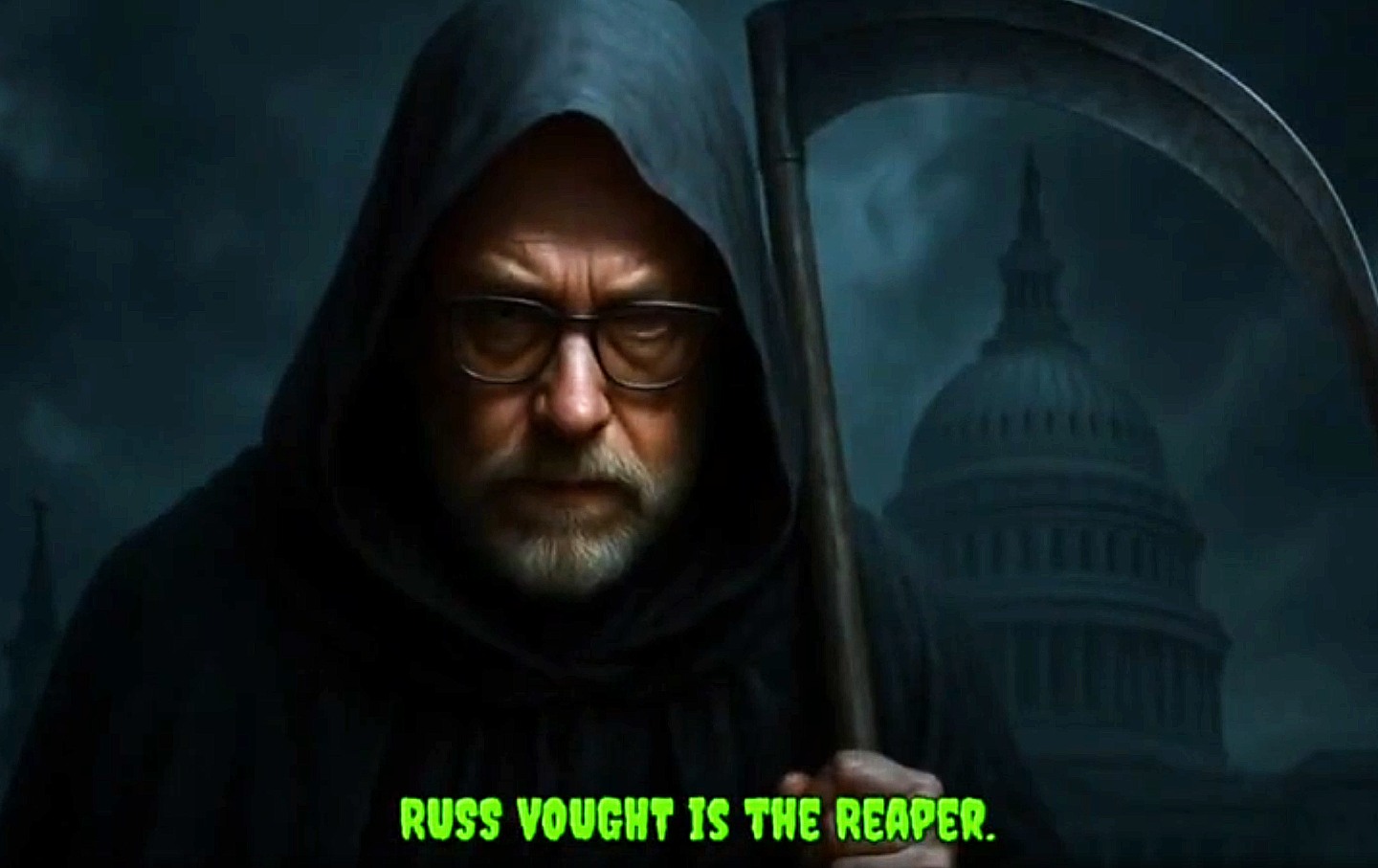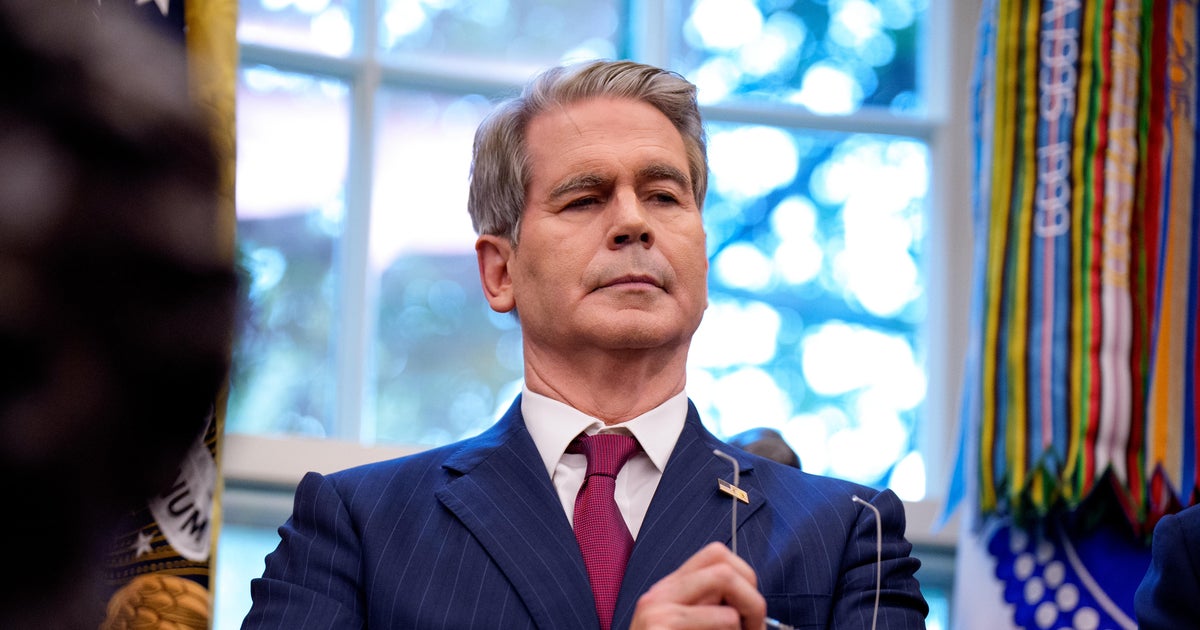
In the chaotic landscape of American governance, Russell Vought, the head of the Office of Management and Budget (OMB) under former President Donald Trump, emerges as a figure emblematic of the reckless disregard for the common good. His recent suggestions to instigate mass firings and agency closures are not merely whimsical musings; they are harbingers of a new era of governmental decay. Vought’s actions pose a risk not only to federal employees but to the very fabric of social accountability and human rights in this nation.
Drawing parallels to a rather absurd YouTube video featuring a chimpanzee with an AK-47, one cannot help but reflect on the bewildering nature of Trump’s economic stewardship, which seems to be guided more by whim than by sound policy. Just as the mercenaries in the video scurry for safety, so too do we find ourselves scrambling to comprehend the implications of Vought’s policies.
Vought has gained notoriety for his significant role in the Heritage Foundation’s Project 2025, a document rife with Christian nationalist ambition aimed at reshaping American governance into a tool for exclusion rather than inclusion. The very notion that something so regressive could be supported by the highest echelons of power speaks volumes about the current state of our political discourse. With Trump promoting Vought as the “Grim Reaper” of federal agencies, we must ask ourselves: what does this say about a government that thrives on dismantling public services?
The impending government shutdown is not an isolated incident but rather a continuation of decades-long efforts to undermine the administrative state. Federal employment levels have stagnated, with numbers hovering around 2.9 million — a stark contrast to the needs of a growing population. While the narrative insists on a bloated bureaucratic system, the reality is a federal workforce that is more a shadow of its former self, stripped of the resources necessary to serve the populace effectively.
Moreover, Vought’s assertion that cuts to federal agencies are merely the elimination of “unconstitutional” diversity, equity, and inclusion (DEI) policies is an affront to the very principles of social justice that we strive for. These are not just buzzwords; they represent fundamental values that strive to create a more equitable society. By targeting these initiatives, Vought is effectively silencing voices that seek to uplift marginalized communities, framing their support as unnecessary or even detrimental.
The fallout of such draconian measures will not be confined to blue states; the repercussions will reverberate through red states, where federal employment and healthcare access are often lifelines. The impact of job losses and healthcare cuts will be palpably felt, particularly in rural areas where healthcare services are already scarce. Vought’s callousness toward the lives that hang in the balance speaks to a broader systemic issue: a government that prioritizes ideological purity over the wellbeing of its citizens.
Reflecting on the previous government shutdown in 2013, it is evident that while some citizens may view furloughs as mere inconveniences, the reality is far grimmer. Many federal employees are left in uncertainty, without the assurance of back pay or job security. This government lockout is more than a political stunt; it is a direct assault on livelihoods and a blatant disregard for the social contract that binds us as a community.
As we stand on the precipice of this shutdown, we cannot ignore the callousness of those in power who seem indifferent to the chaos they create. The Congressional Budget Office has indicated that prolonged shutdowns lead to economic delays and reduced spending, which in turn impacts the private sector that relies on government contracts and data. The suggestion that cuts to the Bureau of Labor Statistics (BLS) will not affect business decisions is not only naive but dangerous. The integrity of economic data underpins our understanding of the labor market and informs critical decisions made by businesses across the nation.
We must recognize that the $6.66 trillion spent by the federal government in Fiscal Year 2025 is not simply a statistic; it represents vital services, social safety nets, and the lifeblood of communities. While the narrative may suggest that cuts will lead to a leaner government, the reality is that they will eliminate essential services that many people depend on, leaving them vulnerable and exposed.
As we brace for the implications of a government shutdown, we must remain vigilant and hold Vought and his ilk accountable for their actions. The political landscape is ripe for change; Democrats must find the courage to articulate the damage caused by these reckless policies and advocate for a government that upholds the values of social justice and human dignity.
The current unemployment rate of 4.3 percent, while historically low, belies the underlying economic struggles that many Americans face. As the specter of recession looms larger, we must not allow ourselves to be distracted by misplaced blame or posturing. We must focus on the collective responsibility we share to advocate for a fairer, more just society.
In the words of Aragorn from “The Lord of the Rings,” we must show no mercy to those who would dismantle the very institutions designed to protect and uplift our communities. Our resolve must be unwavering as we confront the impending crisis and demand a government that serves all its people, not just those in power. The time for accountability is now.
This article highlights the importance of The Architect of Neglect in the Face of Government Shutdown.


